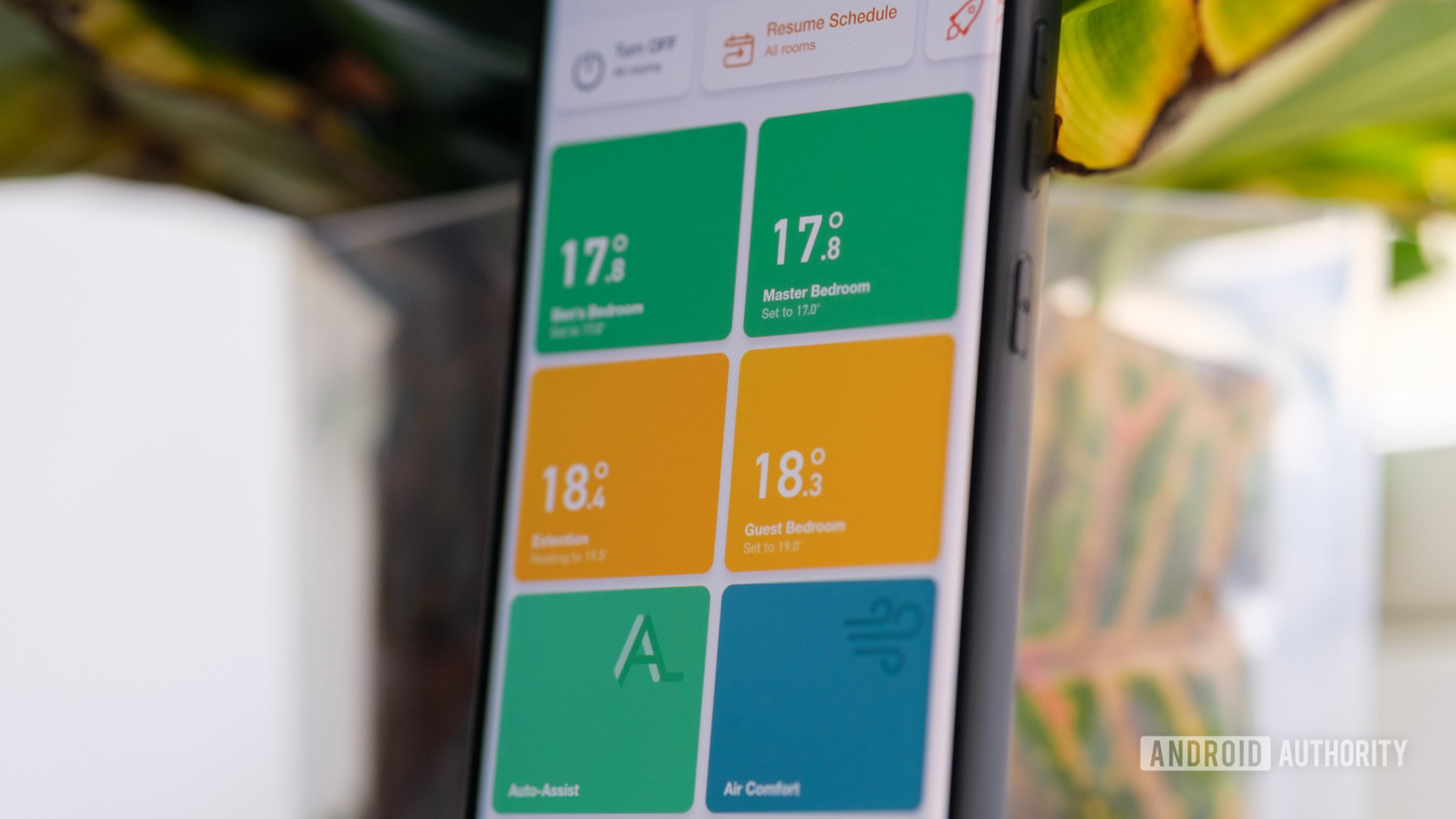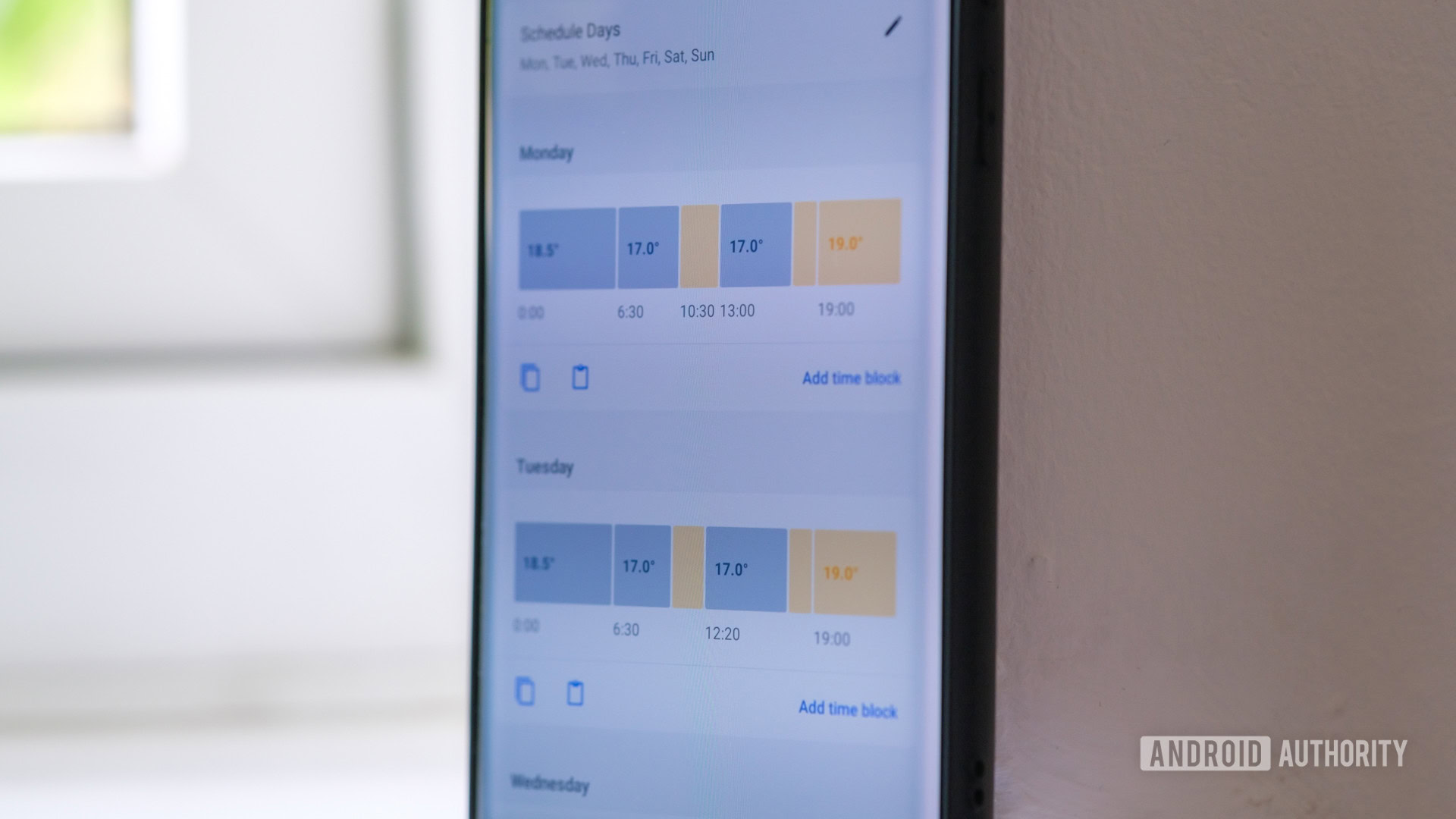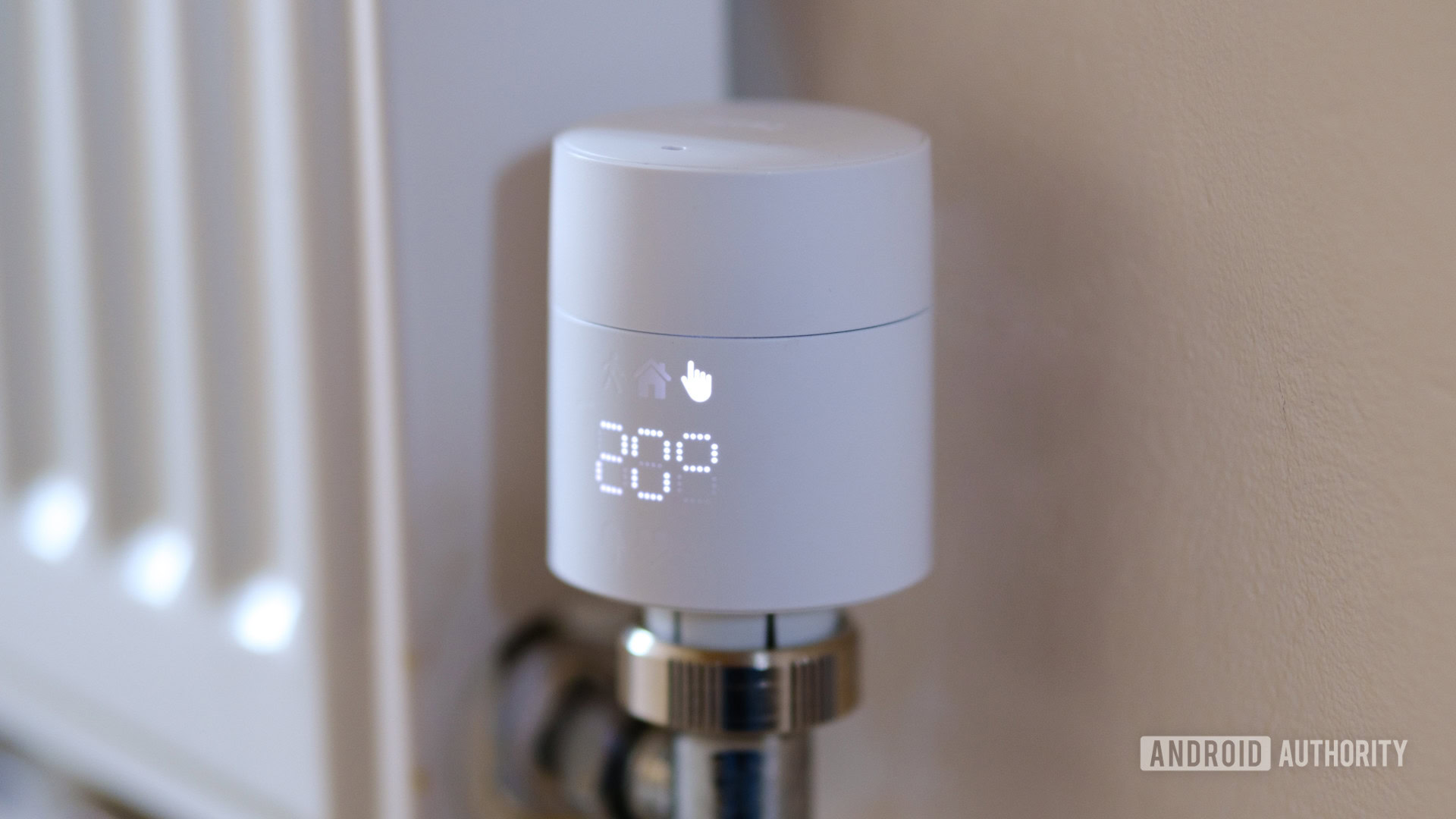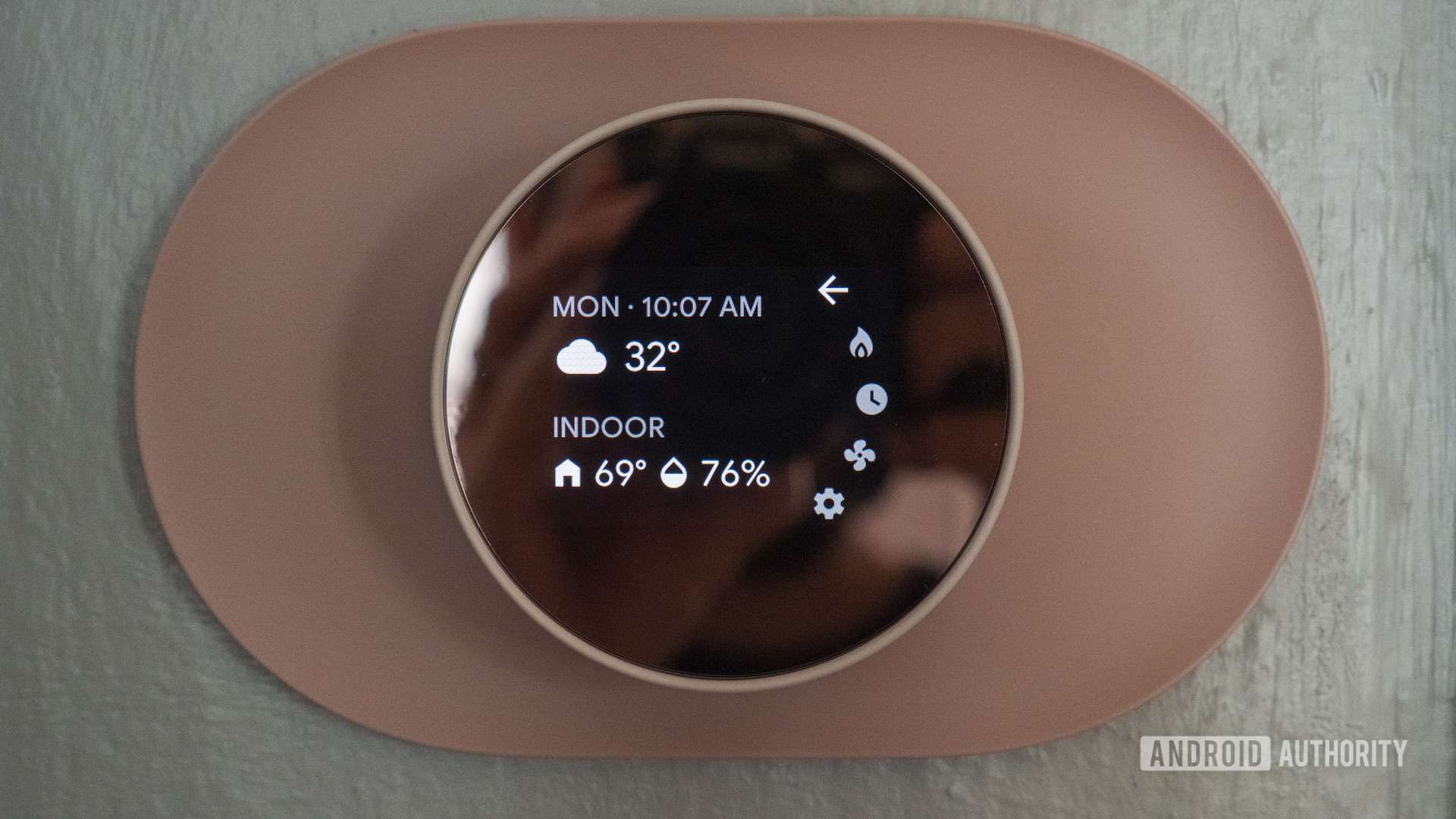My best purchase last Black Friday was a smart thermostat
Robert Triggs / Android Authority
Let’s take a collective moment of silence for our bank accounts this year, as it’s time to fire up our boilers and keep the cold of winter at bay. Thankfully, I do not fear my heating bill as much as I could have. I’ve been reaping the rewards of last year’s prudent Black Friday purchase – a Tado smart thermostat.
This was my first foray into building a smart home, so there are a few things I’ve learned since. But now that my bills have more than doubled due to the cost of energy, I’m patting my past self on the back for already having this energy saver up and running. However, at the time, my purchase wasn’t entirely motivated by financial incentives.
About this article: I bought the Tado Wireless Thermostat Starter Kit and smart radiator valves for my own use and tested it for a year.
You see, my home is laid out rather oddly, owing to an open-plan extension with a very tall ceiling tacked on the side of an old house. Combined with radiators that aren’t quite fit for purpose, heating the downstairs living area is a pain, while the upstairs bedrooms are smaller and, therefore, much easier to keep warm. When I moved in, a traditional thermostat was located in the kitchen downstairs, a completely sub-optimal place resulting in sweaty nights and a huge energy bill to heat the extension.
Wanting to avoid the expense of paying a plumber to install separate heating zones, smart heating with independent room controls seemed like the way to go. There are plenty of options on the market I could have ended up with, but Tado’s wireless thermostat and smart radiator valves, combined with a healthy Black Friday discount, seemed ideal.
Tado Wireless Smart Thermostat Starter Kit
The good, one year later

Robert Triggs / Android Authority
One year later, the best thing I can say about Tado is that it solved my key issue — keeping my house warm and my bank account in the green.
Thanks to per-room scheduling, the smart radiator valves top up the bedroom temperatures throughout the night, only requesting heat for a few minutes every couple of hours. That’s not only far cheaper but also makes for a much more comfortable night’s sleep than the all-or-nothing setup of a single thermostat. Keeping the downstairs warm is now more optimal too, as the upstairs radiators close off when not needed, directing all the heat to the living area. Yet more moolah saved.
Tado provides you with monthly reports, which, for me, claimed anywhere between 20% and 30% savings versus a traditional thermostat last winter. Unfortunately, I didn’t live a full winter here before installing the system, so can’t verify the figures. But I’d guess that the lower estimates probably aren’t too far off, based on using the heating less overall.

Robert Triggs / Android Authority
Since the initial setup, I’ve discovered a few nice extras that I didn’t really factor into my initial purchase as well. Google Home integration (or Alexa or Apple HomeKit, if you prefer) is a solid bonus. I can simply ask my smart speaker to turn up the bedroom heating without having to reach for my phone.
Thanks to the mandatory internet bridge, I can manage our heating away from home, too. I haven’t set up Tado’s geofencing automation, mostly because I’m paranoid about any app knowing when I’m home or away. But that feature is there, should you want it. Even without it, manually preheating the house when I’m returning from a trip is a luxury I now can’t do without.
My bills are lower, bedrooms snugger, and there are lots of extra features too.
Tado also offers a paid Auto-Assist plan that includes features like energy consumption cost breakdowns, automatic preheating before arrival, and heating shutoff on open window detection. Although I think the latter option would be more hassle than it’s worth, based on the number of wrong open window notifications I receive. As such, I don’t use Auto-Assist; I’m too frugal right now to spend an extra £2.68 a month, and the system runs just fine without it.
And the headaches

Robert Triggs / Android Authority
Seemingly with all smart home setups, there are always caveats and issues, and Tado has its fair share.
The “smart” radiator valves, for instance, are far from accurate. Reported temperatures don’t track the real room temperature, owing to their proximity to the radiator, which can cause them to shut off prematurely. At the same time, they’ll report temperatures too cold when the heating is off, causing the heating to kick on too soon. An infuriating level of calibration was required during the week I set them up. I ended up using a separate thermostat to record the real room temperature and then “optimized” the thermostat offsets and smart schedule temperatures to balance the heating correctly. It works great now, even if the reported temperatures aren’t entirely accurate.
Wiring up the wireless receiver to my boiler was nerve-wracking enough, but getting the room-by-room heating to work as intended was far more of a pain than I envisioned. It’s something I can appreciate a lot of users won’t have time for. Tado’s solution is to pair the radiator valves with wireless temperature sensors in each room. But at $90/€100 a pop, that’s not a money-saving solution.
An internet requirement means your heating schedules disappear if your Wi-Fi fails.
My second gripe is the fact that Tado’s heading schedules are stored entirely in the cloud. If you lose your internet connection, your rooms just sit at the last temperature they saw until you adjust them manually. I knew this going in and, thankfully, my fiber connection is plenty stable. But I have had the odd maintenance period that’s caused my smart heating to revert to a worse state than a dumb old thermostat.
I really can’t fathom why it’s implemented this way, especially when Tado requires a wireless bridge plugged into your router and a bulky boiler receiver. Surely the bridge, receiver, or thermostat could have been designed to store schedules for offline use and then report those to the cloud, or at least serve as a backup for outages. Tado isn’t the only internet-required solution, but at least Nest and Honeywell retain their smart schedules in the event of an internet outage.
Should you invest in a smart thermostat?

Jimmy Westenberg / Android Authority
I’m converted to the merits of smart thermostats for both their cost savings and vastly improved temperature control in my home. Tado’s setup does just what I need it to, even if my requirements are a bit niche. That said, Tado’s ecosystem has a few oddities and doesn’t offer all the features you’ll find on other thermostats. Particularly those with more detailed displays; Tado’s thermostat provides you with the temperature and nothing else. You have to dive into the app (or use a smart home integration) to see room humidity, for example.
Fortunately, few of you are likely to share a bizarre house setup like me, so you can likely opt for one of the many alternatives. US customers almost certainly won’t need the smart radiator valves, which widens the range of options further. Since Tado isn’t available in the US, here’s a rundown of some solid alternative picks.
- Nest Learning Thermostat ($199 at Amazon): Google’s Nest Thermostat is a little more expensive, but its self-optimizing routes and learning capabilities make this a smart choice for saving money. Unfortunately for me, Nest doesn’t have its own radiator valves to request heat on a per-room basis.
- Ecobee Smart Thermostat with Voice Control ($194.99 at Amazon): Ecobee’s swankier option is compatible with Alexa, Assistant, HomeKit, IFTTT, and Samsung SmartThings, and comes with a built-in microphone, so you don’t need to be near a smart speaker to use voice controls.
- Amazon Smart Thermostat ($41.99 at Amazon): If you’re big into the Alexa ecosystem, Amazon’s smart thermostat (built on Honeywell technology) could be a solid bet. The thermostat can automatically adjust temperatures for comfort, sleep, or when it thinks you’re away from home, to help save money.
More ideas: The best smart thermostats at every price point
Black Friday is always a great time to keep an eye out for tech deals, especially if you’re looking to build a smart home. I can completely recommend a smart thermostat as a sensible place to start, especially given the potential savings on your energy bills this winter.

Tado Wireless Smart Thermostat Starter Kit
Energy savings • Individual Room Control • Geofencing
For all the latest Technology News Click Here
For the latest news and updates, follow us on Google News.
